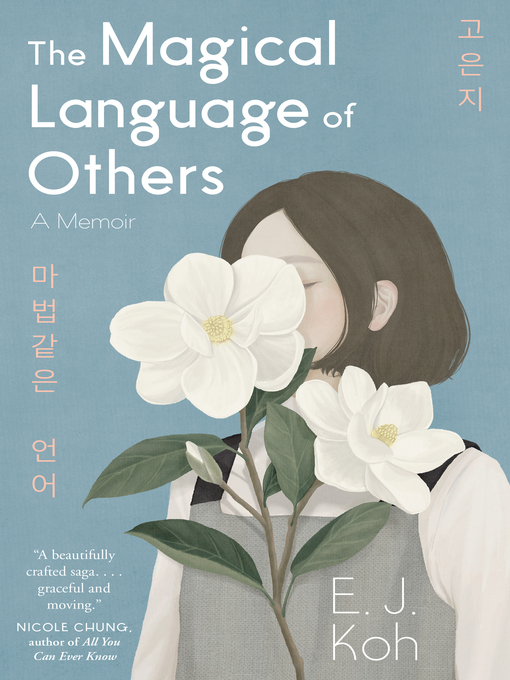
The Magical Language of Others
A Memoir
کتاب های مرتبط
- اطلاعات
- نقد و بررسی
- دیدگاه کاربران
نقد و بررسی

December 1, 2019
Koh's (A Lesser Love) memoir centers on letters written by her mother during the seven years her parents lived in South Korea while Koh attended school in the United States. Part of a collection that Koh found shortly after she moved back to South Korea after her parents retired, the letters show the difficulties of being a mother to children in one country while living in and supporting a husband and relatives in another. The letters also function as a framing device for the stories of three generations of Koh's family. Chapters move from Koh's own struggles in California and Japan to those of her grandmothers, who suffered during times of war and uprisings. Throughout the work, Koh examines both the destructive and redemptive power of language. VERDICT A poignant transgenerational story of trauma and recovery in South Korea, Japan, and America.--John Rodzvilla, Emerson Coll., Boston
Copyright 2019 Library Journal, LLC Used with permission.

October 15, 2019
How a series of letters helped the author understand why her parents left when she was a teenager. When Koh (A Lesser Love: Poems, 2017) was 15, her mother and father left her and her older brother in California to move back to Korea, where Koh's father had been offered a lucrative job. "It was the kind of opportunity," she writes, "others might envy or criticize....Both position and pay left a knot of amazement on my parents' faces." The position was supposed to last three years, after which they would return to their children. But then the contract kept getting extended, leaving the author feeling abandoned. Her mother wrote letters and called home on a regular basis, but Koh struggled with her absence. Years later, she rediscovered the box of tear-stained letters written primarily in Korean and set about translating them. In the process, she began to see her mother in a more rounded, fleshed-out form and to fully comprehend the love transmitted through her mother's words and her ongoing pleas for forgiveness for leaving her daughter at such a pivotal age. Koh was also able to understand more about her grandmother, who witnessed the terrible 1948 massacre on Jeju Island, and what it means to be a mixture of Korean, Japanese, and American. The author includes her translations of some of her mother's letters as well as the originals. Her bewilderment regarding her mother's decision is deeply evident, as are her gradual perceptions about how the move affected her mother. Koh also provides information on her travels to Japan, where she studied, and her brief stint as a dancer in Korea, and she explains how she eventually found her way into a poetry writing program in college and how that further helped her grasp the feelings embedded in her mother's letters. Intimate, subtle insights about a unique mother-daughter relationship.
COPYRIGHT(2019) Kirkus Reviews, ALL RIGHTS RESERVED.

December 15, 2019
At 15, Koh stayed behind in the U.S. while her parents followed a job opportunity to Korea, where they'd emigrated from before the author was born. As a three-year contract stretched to five years, then seven, Koh's mother wrote her letters, some of which the author uncovered while unpacking boxes after graduate school, where she studied poetry and translation. Here, Koh translates several of the letters followed by facsimiles of the originals, letting readers see her mother's Korean script, occasionally interrupted by English words or little drawings. Between the letters, Koh narrates her memories of a parallel time and tells her grandmothers' stories: her mother's mother's broken heart and tragic death; her paternal grandmother's costly survival of the Jeju Island massacre. Koh captures their pasts, and her own, with the lack of straightforwardness memory evinces as sentiments echo across generations: daughters will someday have daughters just like themselves; one day, a daughter will be her mother's mother. Both creative tribute and personal reckoning, this is a finely wrought, linguistically rich, provocative memoir.(Reprinted with permission of Booklist, copyright 2019, American Library Association.)

























دیدگاه کاربران